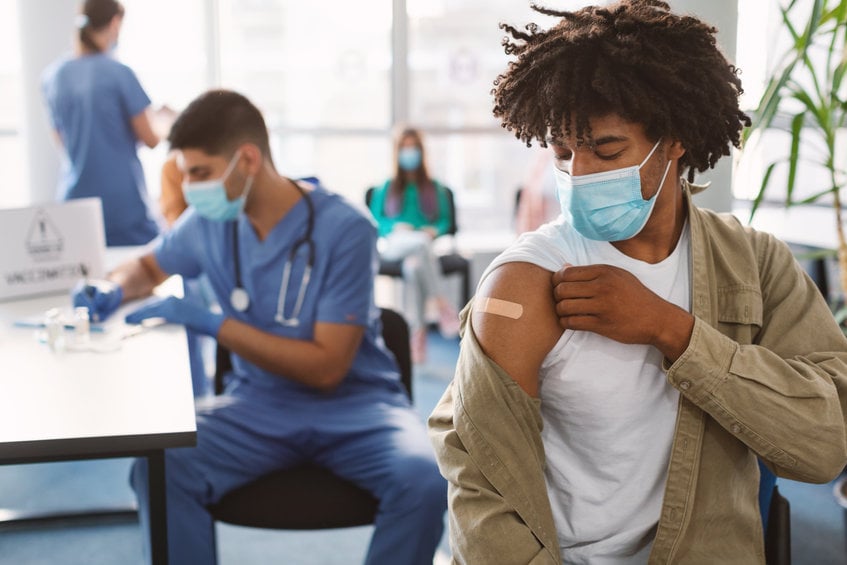
Just weeks ago, it appeared that the COVID-19 in the U.S. may have been on the ropes. But the rise of the Delta variant and the potential for more variants to come reminded us that this dangerous virus will remain for the foreseeable future.
The summer surge of cases represents a new stage of the pandemic, but a year and a half of developing safety measures and, of course, vaccines present an opportunity to defend against the spread.
When it comes to first responders and medical providers who engage in the risky work of airway management during this fraught period, many of the strategies adopted throughout the pandemic still hold true. Read on for a refresher:
The Importance of Airway Management for COVID-19 Patients
COVID-19 makes airway management in emergency medicine more important than ever, especially because you can never guarantee if a patient has the virus or not, regardless of vaccination status. Check the article linked above for a primer on how to approach airway management in the current environment, the procedures that create the most risk for generating aerosolized particles, and several safety tips.
Using the SALAD Technique with COVID-19 Patients
The Suction Assisted Laryngoscopy and Airway Decontamination (SALAD) technique can be a lower-risk alternative to airway suction, and recent findings suggest it can potentially protect emergency personnel from airborne viruses and harmful emissions. The technique is designed to effectively and efficiently clear a patient’s airway prior to intubation, which is required for patients with more serious cases of COVID-19.
SSCOR’s DuCanto Catheter, featuring a larger diameter suction tip and curved to be shaped more like a patient’s airway, is specifically designed for performing the SALAD technique.
Protecting Yourself from COVID-19 While Suctioning Patients
Medical personnel are among the true heroes of the pandemic, working on the frontlines of the crisis and putting themselves at risk to provide patients with the treatment they badly need. But that doesn’t mean their personal health is any less important. These are a handful of strategies to guard against COVID-19 without compromising patient care (see the article link above for more):
- ν Practice basic infection prevention
- ν Treat all patients as potentially COVID-positive
- ν Balance patient medical and mental health
- ν Never rush
- ν Properly store your equipment
- ν Always be prepared for an emergency
4 Ways COVID-19 Changed Airway Management
With the rise of new variants and the struggle to vaccinate in other parts of the world, the pandemic’s end remains out of sight. Even when that time comes, COVID-19’s impact will likely be felt. For our purposes, it significantly changed airway management and continues to do so in the following ways:
- A massive increase in demand: Historically, airway management was an emergent need for people with chronic and serious illnesses. Because of COVID-19, millions across the world require airway management and the airway management industry, including practitioners and equipment suppliers, are in high demand.
- Rising concerns: Medical providers have long known that diseases can transmit during airway management procedures, but the pandemic proved just how vulnerable we all are and made enhanced safety measures a priority.
- Less emotional support for patients: Because of the highly contagious nature of the virus, many patients have had to endure treatments, such as intubation, on their own — in the worst cases, right up to their deaths. It leaves first responders to fill the gaps.
- Emphasis on portable support: Patients must be able to treat patients where they are, especially if a hospital becomes overcrowded. For more on portable emergency suction, check out our e-book “The Ultimate Guide to Purchasing a Portable Emergency Suction Device.”
How Dental Suctioning Has Changed Due to COVID-19
Beyond emergency medicine and hospital settings, suctioning is vital in other medical fields, especially dentistry. Because dental procedures can generate and accelerate the spread of harmful aerosols, including the coronavirus, frequent suctioning is required, as well as other aggressive safety measures. Also, as with other medical settings, a portable suction unit allows dentists and support staff to be more adaptable in the office.
Stay Safe
As we see daily now, the COVID-19 variants are far more infectious than the original strain, and though vaccinations still provide strong protection, everyone remains at risk of contracting or spreading the virus. And for medical personnel engaging in airway management, suctioning continues to have added importance — for patients and providers alike. Following proper procedures can save lives.













